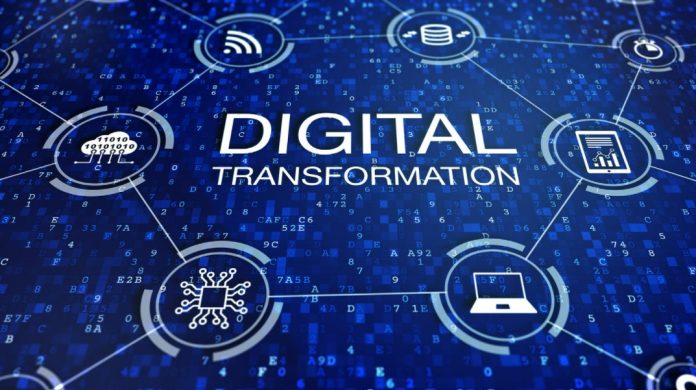Table of Contents
Market requirements keep changing with time. However, being relevant to these changes is of paramount importance for most companies. Digital transformation can help overcome this challenge. The latter involves integrating a company’s culture and business processes with digital technology.
For eCommerce businesses, including B2C and B2B companies, aligning business activities with digital technology is a necessity, the importance of which cannot be overlooked. Due to this reason, most experts believe digital transformation is the key to shaping the future of eCommerce stores. Here are some cogent reasons that advocate this view.
12 Reasons That Make Digital Transformation the Future of eCommerce
To begin with, digital transformation is evident in how B2B and B2C companies compete with their competitors. Digital technology assists companies in formulating and implementing business strategies based on data insights and the behaviour of consumers. Implementing such strategies enables businesses to achieve their desired results.

After starting an eCommerce business, stores utilize digital technology to integrate with social media. In the past, the use of social media accounts was limited to the publication of online ads. But things have changed with time. Apart from publishing online ads, eCommerce brands also use social media to interact with customers directly.
Here’s why digital transformation is not merely a luxury but a necessity for e-commerce stores.
1. Digital Transformation Helps Meet the Rising Expectations of Customers
Along with the existing technologies, eCommerce companies are also adopting trending technologies. The prominent ones include the Internet of Things (IoT), Robotics, and algorithms based on Artificial Intelligence (AI).
Due to the evolution of digital transformation based on the emergence of these feature-rich technologies and their adoption by companies, customers have more expectations now than in the past. Apart from the above-mentioned technologies, augmented reality (AR) and virtual reality (VR) have a great potential of enhancing customer experience if integrated with business.

Digital transformation is the only means to integrate these technologies with business activities. As most eCommerce stores strive to provide the best customer experience, they are likely to include digital transformation in their scheme of things.
2. Digital Transformation is Instrumental in Creating a Strong Online Presence for Brands
The deep penetration of the Internet, coupled with its widespread availability, has transformed how brands engage with customers. Due to it, the importance of online presence is at an all-time high for brands. A strong online presence is necessary for a brand to draw the attention of prospective customers for both sales and revenue generation.
Some customers may purchase their preferred products from retail stores. But they visit eCommerce stores for information about a product. Nothing else convinces a customer to invest in an item than an engaging and up-to-date piece of information about it.
Digital transformation helps brands update the information about their products from time to time. Sometimes product information arouses curiosity in a customer’s mind to know more about the product. Nine out of ten times, Potential customers are likely to contact an eCommerce store with their queries in such situations.
In the future, there is a likelihood of a further increase in these activities due to which digital transformation will be a key consideration for the majority of eCommerce stores.
3. Digital Transformation Provides the Requisite Tools for Driving Digital Commerce
Some platforms and tools are necessary for driving digital commerce. On their part, eCommerce stores need to provide consumers with a fluid experience. It is a must for eCommerce stores to survive and move forward in the competitive business world.
The fluid and seamless experience, which most customers of eCommerce stores look forward to, comes with digital transformation. Given the rising number of smartphone users, coupled with the entry of new FinTech players in the market, the demand for digital transformation is likely to increase in the future.
4. Digital Transformation Facilitates the Direct Sale of Products to Customers
Direct to consumer (DTC) is a new selling approach that most companies have started adopting these days. It brings two major benefits to the table for eCommerce stores as a fresh approach. Apart from allowing them to control the customer experience, it also increases customer satisfaction.

Customer satisfaction brings positive reviews to brands from existing customers. Such reviews also encourage prospective customers to invest in a brand’s products. In the business sense, it translates into more sales and an increase in the revenue for brands.
5. Digital Transformation provides an easy Solution to go Digital in Everyday Life
At present, digital transformation is imperative for businesses of all sizes. It is indispensable for eCommerce stores in the context of market dynamics that keeps evolving with time. Such stores face two major challenges: other than staying afloat in the market; they also need to keep competing with their rivals.
Integrating digital technology in business activities can help accomplish both these tasks simultaneously. This move can benefit a brand in two ways. Alongside boosting its productivity, a brand can also add more value to its business for the benefit of its customers by adopting this approach.
In the eCommerce segment alone, digital transformation has the potential to touch the magical figure of $2.4 trillion in the coming years. However, eCommerce businesses need to replace manual processes with digital strategies to achieve this target in the future.
6. Digital Transformation Maximizes the Scope of Online Shopping through Augmented Reality
Today’s customers are smarter and more informed than ever before. They consider the specifications and other details of a product before investing in it. They try visualizing a product to make certain they are investing in the right item. Augmented Reality (AR) has made things easy for customers in this regard.
In the past, people relied on their imagination to visualize products. In contrast, they can envision a product and make informed decisions. This has been possible due to the emergence and sophistication of AR. Due to it, customers can overcome psychological barriers with proficiency while shopping from eCommerce stores these days.
AR has created a win-win situation for both customers and businesses alike. For this reason, BigCommerce and other SaaS-enabled eCommerce solutions operate in conjunction with AR integrations.
7. Digital transformation has helped Physical Retail Businesses to move to eCommerce and it will continue to do so
Before the outbreak of the Covid-19 pandemic, most people used to buy their preferred items or at concrete stores. But after the outbreak of the pandemic, this standard practice changed for most customers due to frequent lockdowns. Even those who weren’t used to online shopping had to switch to it to shop for essentials and other products.
Lockdowns made way for digital transformation for most shopkeepers of physical stores in two ways. With their concrete stores shut down, some shopkeepers started eCommerce stores on their own to sell their products. Others collaborated with existing eCommerce vendors for this purpose. Either way, digital solutions enabled shopkeepers to maintain sales and profit margins by supplying products to customers.
As the world crawls towards normalcy, the purchase of goods from eCommerce stores will likely increase. The convenience of buying products online from eCommerce is likely to continue drawing the attention of both existing and prospective buyers in the future.
The retail e-commerce sales in the United States are projected to touch the 476-billion-dollar mark by 2024 – thanks to digital transformation. Other countries will also attain impressive growth in the retail e-commerce market in the coming years.
8. Digital Transformation Helps Enhance Personalization through Big Data
Personalization is a key element of B2B marketing as it underscores customers’ preferences through data-driven insights. It comes through digital transformation, including machine learning, big data, and artificial intelligence.
Amazon and other major eCommerce retailers utilize machine learning (ML) to supply personalized items to consumers. ML helps such retailers draw insights into customers’ activity and study their behaviour to create personalized shopping experiences.

eCommerce retailers do not shy away from integrating their websites with product recommendations to add personalization and big data to their business model.
Big data provides companies with a huge chunk of data. However, it doesn’t come organized on its own. The vast amount of data that it supplies needs processing and proper analysis. Digital transformation makes this process smooth and well-organized through artificial intelligence and machine learning.
9. Digital Transformation Powers Innovation through eCommerce Driven by APIs and Headless eCommerce
Headless eCommerce is an innovative approach involving decoupling a company’s eCommerce platform on the backend to expedite operations.
Among major brands, Lark uses it to record customers’ preferences seamlessly into its database. The data that enters its headless eCommerce system passes through numerous application programming interfaces before going to its front end. Some application programming interfaces (APIs) include content management systems and progressive web apps.
Headless eCommerce comes across some undeniable advantages like flexibility, customization, and personalization. Besides being SEO-friendly, it also brings multiple international transactions under a single domain.
Some users like to do online shopping on multiple devices. Usually, they prefer switching from one device to the other device instead of being confined to a single device. In such cases, offering customers a smooth experience and monitoring their behaviour becomes a major challenge for businesses. Headless eCommerce enables them to exercise control over consumer experience, thereby making a big difference to the outcomes.
More eCommerce retailers will join the existing ones in operationalizing headless eCommerce in conjunction with APIs to offer invaluable customer experience to business prospects.
10. Digital Transformation will Help Adopt Alternative Payment Methods
Credit cards have been the obvious option for transactions on eCommerce stores since the 1920s. However, things have started changing with the emergence of blockchain platforms. Owing to the increasing popularity of Bitcoin and other decentralized digital currencies, shoppers have started hunting for options involving such currencies for making payments.
Thus, businesses, especially those that deal with apparel and luxury goods, have the seemingly onerous task of integrating alternative payment methods to stay ahead of the competition. With new players entering the domain of blockchain technology, it’d be interesting to see how eCommerce stores accomplish this task in the future.
11. Digital Transformation Make Leads from Google and Bing More Useful for Businesses
Most businesses rely on a search engine optimization (SEO) strategy to gain leads. But what matters more is the conversion of those leads into sales. Conversion rate optimization (CRO) helps with it. Without it, the digital marketing strategy of any firm remains incomplete.
Among other things, CRO promotes optimization through effective frameworks. With the latter’s help, admins tweak their strategies and measure the results to see the results.
According to statistics by Forbes, at present, top companies invest up to $2000 every month in CRO tools. It will keep increasing with time as admins of top brands look deeper into navigation options, product descriptions, and page design alternations.
12. Digital Transformation is one of the Top Reasons for Surging B2B eCommerce Sales
B2B eCommerce is thriving at present. However, it still has a long way to go in the foreseeable future. Statista projected the growth of this sector in the United States to go up to $1.1 trillion by 2021.

The rising focus on digital transformation means that there will be a further rise in the implementation of digital initiatives. Accordingly, B2B businesses would do their best to promote brand loyalty. Whether it is about updating product catalogues or including cutting-edge templates, digital solutions will be the game changer for B2B businesses in the future.
Final Thoughts
As a process, digital transformation is continuous by nature which makes it the next big thing for eCommerce brands. Brands’ online presence promotes digital commerce, which comes from digital transformation. The latter also enables eCommerce stores to boost their profit margins without prompting them to exceed their budget.
These aspects, coupled with the reasons mentioned above, will make digital transformation a valuable asset to eCommerce in the future.


